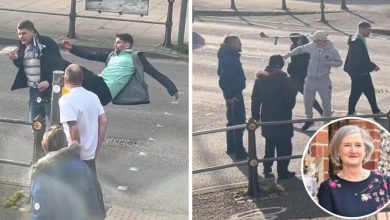Norwich folk doubt that police can enforce laughing gas laws
Last month, the government criminalized nitrous oxide, also known as laughing gas, and classified it as a controlled Class C substance. According to the new law, serial users could face up to two years in prison, while dealers could be subjected to up to 14 years behind bars. While the law aims to deter the use of nitrous oxide, there are concerns about how effectively it will be enforced and whether people will find alternative ways to use it. This has led to skepticism about the ability of law enforcement to monitor the use of nitrous oxide effectively.
Paulette Solomon, a resident of Drayton, expressed doubts about the effectiveness of the law. She believes that people who want to use nitrous oxide will simply find more secretive places and ways to do so. Despite the good intentions behind the law, she doubts that there are enough police resources to effectively enforce it. Similarly, Alison Wilkin of Taverham also raised concerns about the law, stating that it may be difficult for the police to enforce, especially given that nitrous oxide use often occurs in quieter areas or when fewer people are around.
Under the new law, people caught with nitrous oxide with the intention of inhaling it could face an unlimited fine, community punishment, or a caution that would appear on their criminal record. However, the chief executive of Norwich-based Mancroft Advice Project, which supports thousands of young people in Norfolk, believes that the government’s focus on nitrous oxide is a “distraction.” He argues that the emphasis should be on tackling the gangs supplying heroin and cocaine, which pose a greater concern than nitrous oxide possession. Overall, there is skepticism about the ability of the government to effectively enforce the law and prevent the use of nitrous oxide.



